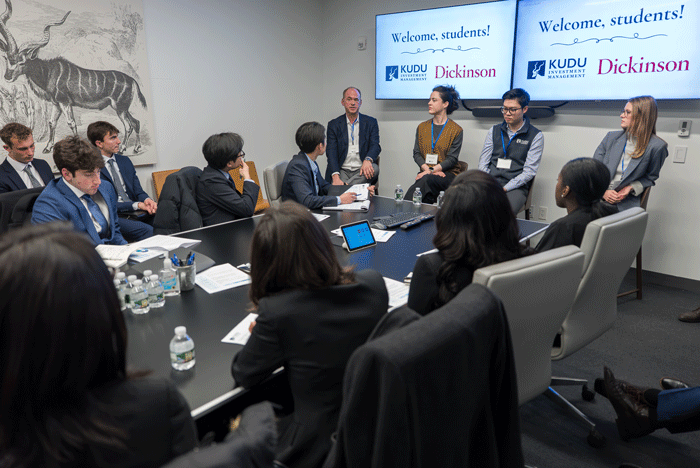When Dickinson’s Quantitative Reasoning Center launched in 2016, it created a resource to help students understand the connections between what they were already studying and the quantitative environment in which we all live.
Designed to provide students with a strong foundation in mathematical and statistical concepts and techniques, the center focuses on developing problem-solving, critical-thinking and data-analysis skills that are in high demand in today's job market.
The QR Center also helps students move through the gateway to more deeply quantitative classes, with QR tutors and associates helping to clarify the role of numeric-based thinking across all divisions of the college. Students can use the QR Center to facilitate deeper, skills-based learning by taking advantage of opportunities such as workshops on coding qualitative data in anthropology, help with data-related projects in political science, learning to communicate with quantitative information in a first-year seminar or attending Excel or data visualization workshops each semester.
What has followed in the QR Center’s footsteps has solidified Dickinson’s place on that landscape, with a quantitative economics major created in 2018 and a data analytics major in 2021, the latter establishing Dickinson as one of very few liberal arts colleges in the country to offer a major in the field.
Quantitative thinking now permeates the curriculum across campus, in disciplines from math and computer science to anthropology, psychology and philosophy, the last of which offers Philosophy of Data, a course serving as an introduction to philosophical and ethical issues arising in data science such as discrimination, privacy, consent, trust, and justice. Our faculty has purposefully surfaced quantitative thinking in existing fields, a new layer of the liberal arts, a new lens through which to explore and reinforce the foundations of Dickinson’s liberal arts curriculum.
